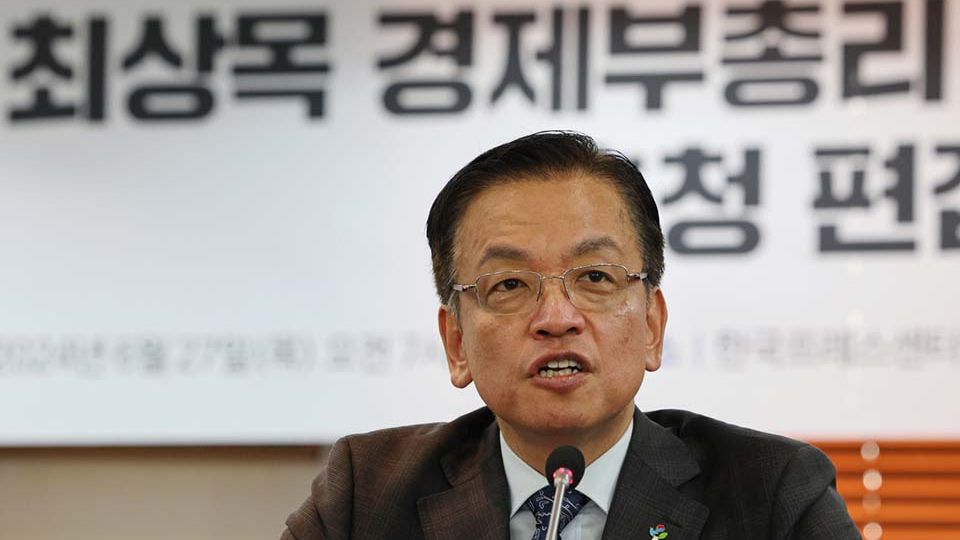June 28, 2024
SEOUL – The South Korean government is to revise the inheritance tax scheme that imposes up to a 60 percent tax for big companies here as part of the government’s tax code revision slated for late July, Finance Minister Choi Sang-mok said Thursday.
“I personally prioritize the inheritance tax reform, which requires more deliberation,” Choi said when asked about the government’s priority regarding tax reform at a forum hosted by the Korea News Editors’ Association.
“The inheritance tax rate is of a high level here and the current measure, which has been in place more than around 20 years, has to be reasonably revised,” Choi said.
Under the current law, the country imposes a 10 percent tax for inheritance of assets with a tax base of 100 million won ($72,150) or under. The rate goes up to 50 percent for assets that exceed 3 billion won, which is the second-highest level following Japan’s 55 percent among Organization for Economic Cooperation and Development member countries. For controlling stakes in major firms, a 20 percent surcharge sends the maximum rate is 60 percent.
The average inheritance tax rate for OECD members stands at 15 percent, while countries such as Sweden, Norway, Austria, Canada and Australia have abolished inheritance tax.
While the inheritance tax scheme has remained the same for more than two decades, the number of taxpayers to whom the inheritance tax applies has been increasing sharply, rising from 10,181 in 2020 to 19,944 in 2023, partly due to the recent price hikes of real estate properties here.
The presidential office has been looking into reducing the top rate of inheritance tax rate from the current 50 percent to 30 percent. Another possible area of reform is the “estate tax” system, which levies a tax on the total assets owned by a predecessor, instead of the “inheritance tax” system that imposes a tax on the inheritance.
“Considering the urgency and necessity of the tax reform, (the revision) will be included in the tax law amendments in July,” Choi said.
Meanwhile, six major business lobby groups here, including the Korea Chamber of Commerce and Industry and the Korea Enterprises Federation, called for the government to revise the related laws by releasing a booklet on the same day.
The booklet claims Korea’s inheritance tax and gift tax system run counter to global standards, and that the burden from the taxes is among the highest in the world.
It claimed inheritance tax and gift tax are a cause of double taxation, as the taxes are imposed on assets that have already been taxed through income tax or property tax.
Yet the government’s push to revise the inheritance tax law is likely to face hurdles. The reform plan for the tax was postponed last year due to heavy criticism from the main opposition Democratic Party of Korea, which has a majority of parliamentary seats here, which claimed the revision would only benefit those born with a “silver spoon.”
At the event, Choi also mentioned the government’s “corporate value-up program,” which aims to boost the Korean stock market by pushing listed firms to enhance market value.
“The corporate value-up program is a long-term directive. (The government) is considering providing tax incentives to participating companies for the time being,” Choi said, mentioning how the government could ease regulations on the corporate tax and income tax on dividends.
While the value-up guidelines have received criticism that the directive lacks motivational drivers as it is not compulsory, the authorities stressed they will encourage companies to participate by offering tax incentives.
“Securing competitiveness of market-listed companies is important to resolve the ‘Korea discount,’” Choi said, referring to the tendency of companies listed here to have lower market valuations than their global peers.
“We are looking into how the market could reflect the true value of companies, in comparison with global standards,” Choi said.


